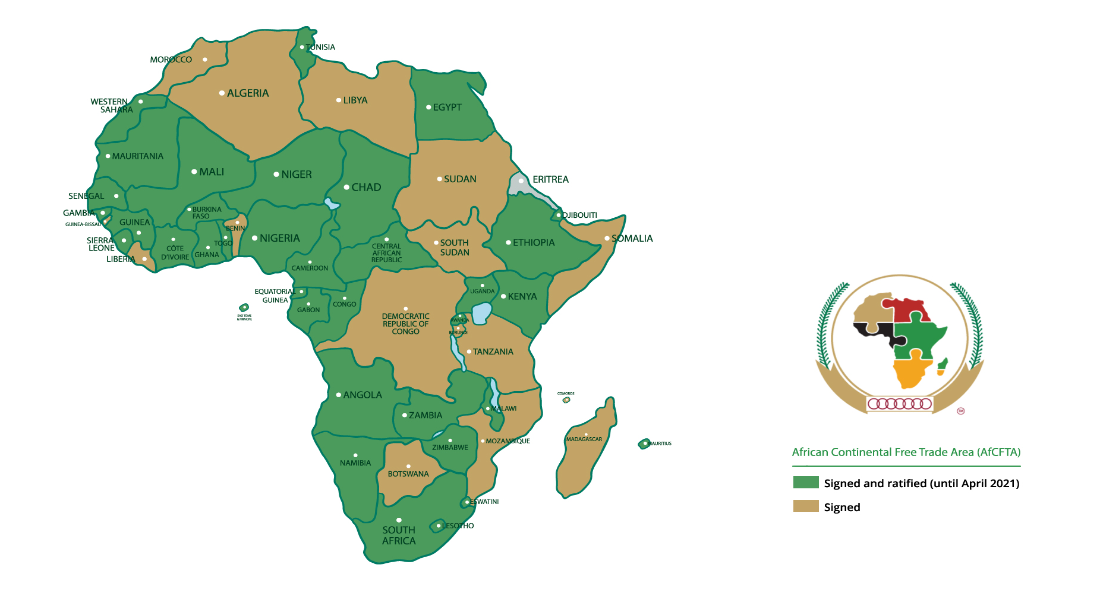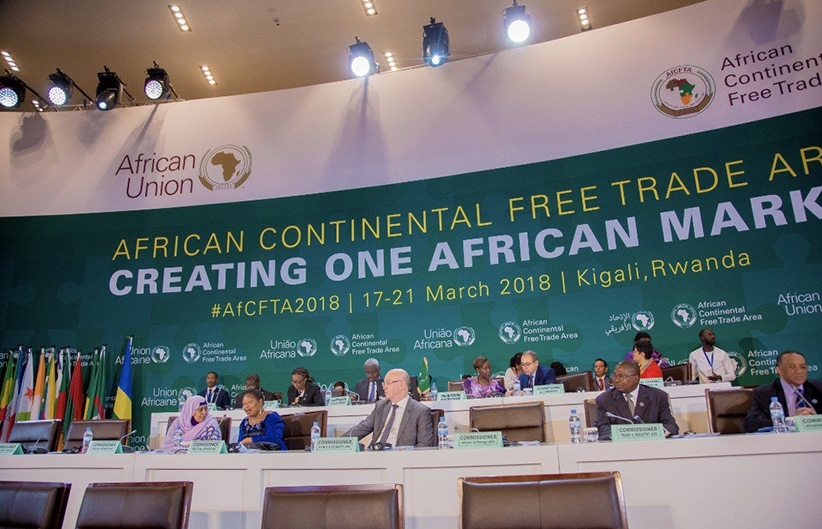A Historic Leap towards Pan-African Unity
On January 1st, 2021, the African Continental Free Trade Area (AfCFTA) took effect, marking a historic milestone in the continent’s journey towards economic integration. This agreement, signed by 54 African countries, aims to create the world’s largest free trade area, with a combined GDP of over $3.3 trillion and a population of over 1.3 billion. The AfCFTA is expected to boost intra-African trade by up to 60%, reduce tariffs, and eliminate non-tariff barriers.

Image: inventa.com
The AfCFTA is much more than just an economic agreement; it is a testament to the shared vision of a prosperous and interconnected Africa. It is a bold step towards achieving the lofty goals set out in Agenda 2063, the African Union’s long-term strategic plan for the continent. The agreement is a powerful symbol of unity, cooperation, and self-reliance, promising to spur economic growth, create jobs, and improve the lives of millions of Africans.
Unlocking Africa’s Economic Potential
The AfCFTA has the potential to transform Africa’s economy by fostering greater trade and investment. By eliminating trade barriers, businesses will have access to a much larger market, making it easier and more cost-effective to expand their operations across borders. This increased trade is expected to lead to job creation, higher incomes, and improved living standards for people across the continent.
In addition to boosting trade, the AfCFTA is also expected to stimulate investment. With reduced tariffs and a more harmonized regulatory environment, foreign investors will be more inclined to invest in Africa. This investment can help to develop infrastructure, create jobs, and support economic growth. The AfCFTA is also expected to attract African investment, as businesses seek to tap into the vast opportunities offered by the larger market.
Overcoming Challenges and Seizing Opportunities
Despite its tremendous potential, the AfCFTA is not without its challenges. Implementing the agreement effectively will require significant effort and cooperation from all participating countries. Issues such as infrastructure development, trade facilitation, and customs harmonization will need to be addressed to ensure the smooth flow of goods and services. However, these challenges should be seen as opportunities to strengthen regional cooperation and foster a sense of shared purpose among African nations.
In addition to overcoming challenges, it is also important for African countries to seize the opportunities presented by the AfCFTA. Businesses should explore new markets, develop innovative products and services, and build partnerships across borders. Consumers should take advantage of lower prices and a wider selection of goods. Governments should continue to work together to improve infrastructure, facilitate trade, and create a conducive environment for investment.
Expert Advice for Thriving in the AfCFTA
As businesses navigate the new landscape created by the AfCFTA, it is essential to seek expert advice and guidance. Here are a few tips to help businesses thrive in the emerging free trade area:
Research and Understand the Market: Conduct thorough research to identify opportunities and challenges in the AfCFTA market. Understand the specific regulations, tariffs, and trade policies that apply to your products or services.
Develop a Comprehensive Strategy: Develop a clear and concise strategy for entering and operating in the AfCFTA. This strategy should include market entry plans, product development, and partnership strategies.
Build Relationships and Partnerships: Establish relationships with local partners, distributors, and investors to gain access to local knowledge and expertise. Partnerships can help businesses overcome cultural barriers and navigate the regulatory landscape.
Leverage Technology: Utilize technology to streamline operations, facilitate communication, and access market information. E-commerce platforms, mobile payment systems, and data analytics can help businesses grow their reach and improve efficiency.
Seek Professional Advice: Consult with experts, such as trade lawyers, consultants, and financial advisors, to ensure compliance with regulations, optimize tax strategies, and make informed business decisions.

Image: www.oyibosonline.com
Frequently Asked Questions (FAQs)
- What is the goal of the AfCFTA?
To create a single, continental market for goods and services in Africa, promote economic integration, and boost intra-African trade. - Which countries are part of the AfCFTA?
54 African countries, representing over 90% of the continent’s GDP. - When did the AfCFTA come into effect?
January 1st, 2021. - What are the benefits of the AfCFTA?
Increased trade, job creation, economic growth, improved living standards, and reduced poverty. - What are the challenges of implementing the AfCFTA?
Infrastructure development, trade facilitation, customs harmonization, and political instability.
Africa Free Trade Agreement Latest News Yestrday
Conclusion
The Africa Free Trade Agreement is a groundbreaking initiative that has the potential to reshape the continent’s economic and political landscape. It is a testament to the spirit of unity, cooperation, and self-reliance among African nations. By removing trade barriers, fostering investment, and creating a more conducive environment for business, the AfCFTA can unlock Africa’s economic potential and improve the lives of millions of Africans. It is a historic opportunity that must be seized by all stakeholders, from governments to businesses to consumers. The journey towards a prosperous and integrated Africa begins now, with the implementation of this transformative agreement.
Are you interested in the latest news, developments, and opportunities related to the Africa Free Trade Agreement? Would you like to stay informed about the implementation process and its impact on African economies? If so, continue to follow our blog for insightful articles, expert interviews, and the latest updates on the AfCFTA.






